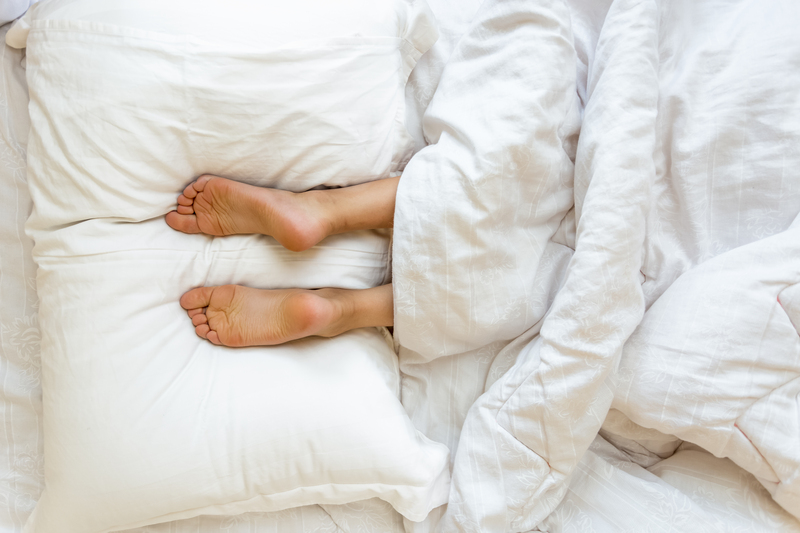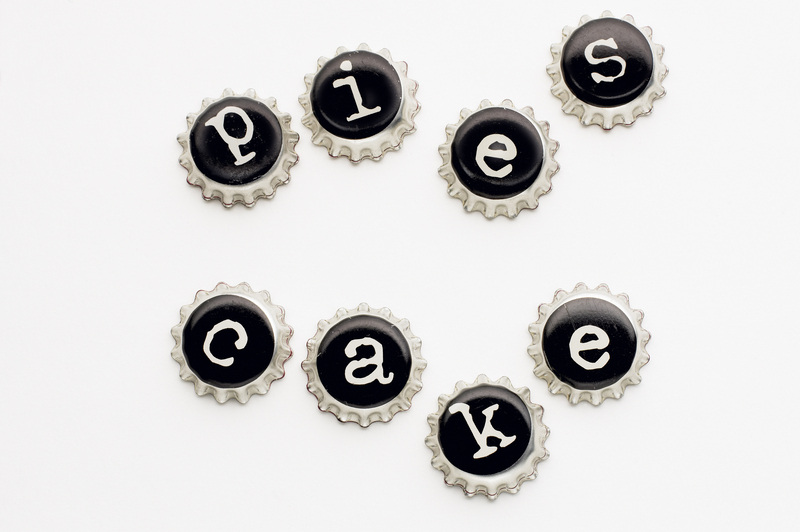
Minimalist Living: Your Guide to Decluttered Spaces
Minimalist living has emerged as a popular lifestyle trend, inviting people to reconsider what really matters in their homes and lives. If you've ever felt overwhelmed by clutter, distracted by unnecessary possessions, or simply want to create a peaceful sanctuary in your space, this comprehensive guide is for you. In the sections below, we'll explore what minimalist living means, how to start decluttering, the benefits of a clutter-free lifestyle, and practical tips to maintain simplicity.
What is Minimalist Living?
Minimalist living is a lifestyle that prioritizes simplicity by eliminating excess and focusing on the essentials. The idea goes beyond just a tidy home or neat shelves--it's about cultivating a peaceful environment where you are surrounded by items you truly love and use regularly. Minimalism can apply to your possessions, calendar, and even your mindset.
At its core, decluttered spaces promote clarity, intentionality, and contentment. Many people who embrace minimalism find that they have more time, less stress, and better focus on what truly brings them happiness.
Why Choose a Minimalist Lifestyle?
Switching to a minimalist lifestyle isn't just about having less. It's about making space for what matters most to you. Here are just a few reasons people are drawn to minimalist living:
- Reduces Stress: Clutter has been linked to anxiety and distraction. Less stuff means less chaos.
- Saves Time: With fewer things to clean, manage, or look after, you gain back valuable time every day.
- Improves Finances: Mindful consumption leads to spending less money on non-essential items.
- Environmental Advantages: Consuming less reduces your environmental footprint and supports sustainability.
- Boosts Wellbeing: A tidy, organized environment supports mental clarity and enhances creativity.
First Steps: Decluttering Your Space
How to Start Your Minimalist Journey
The journey to decluttered living starts with a single step: deciding to begin. Here are the key steps to set you up for success:
- Set Your Intention: Reflect on why you want to live more minimally. Do you crave simplicity, want to save money, or hope for a more peaceful home?
- Visualize Success: Imagine how your space will look and feel when decluttered. This vision will keep you motivated.
- Start Small: Avoid overwhelm by beginning with a single drawer or closet. Progress, not perfection, is key.
- Sort and Assess: Touch each item and ask, "Does this add value to my life?" If not, it might be time to let go.
- Organize by Category: Tackle items in groups such as clothes, books, or kitchenware rather than room by room initially--this prevents things from shifting instead of leaving your home.
Remember: The goal isn't to own nothing, but to own only what improves your life.
Room-by-Room Minimalist Guide
1. Minimalist Living Room
- Furniture: Choose multi-functional pieces and keep surfaces clear.
- Decor: Limit to a few statement items or plants. Avoid excessive throws or pillows.
- Electronics: Store remote controls and gadgets out of sight when not in use.
2. Minimalist Kitchen
- Countertops: Keep only daily-use appliances visible--store the rest in cabinets.
- Utensils: Pare down to the essentials. Donate duplicates or unused tools.
- Pantry: Group foods by type and use clear storage containers for easy access.
3. Minimalist Bedroom
- Wardrobe: Create a capsule wardrobe with versatile pieces you love and wear often.
- Nightstands: Clear off everything but essentials (lamp, alarm clock, book).
- Bedding: Stick to a simple, calming color palette for a restful vibe.
4. Minimalist Bathroom
- Counter Space: Store toiletries you use daily and keep surfaces clear.
- Linen Storage: Limit towels and linens to just a few per person.
- Products: Use up or donate half-used beauty products or samples.
5. Minimalist Home Office
- Desk: Keep only your computer, notebook, and one or two functional tools.
- Papers: Digitize files when possible. Sort and shred what you don't need.
- Decor: One inspiring photo or quote can personalize your space--avoid clutter.
Essential Decluttering Tips
General Principles for Decluttered Living Spaces
Minimalism isn't just about getting rid of things--it's a way to think about what you truly need and value. Use these expert tips to steer your journey:
- Don't Organize Until You've Decluttered: Many people try to store things before editing. Purge first, then organize what you keep.
- Have a Place for Everything: A core principle of minimalist spaces is that every item has a home.
- Apply the One-In, One-Out Rule: Every time you bring in something new, let go of an existing item.
- Use Storage Wisely: Opt for closed storage to conceal visual clutter, but avoid simply hiding things you don't need.
- Practice Mindful Consumption: Buy items with intention and only when they serve a clear purpose.
- Let Go with Gratitude: When parting with possessions, thank them for their service--this mindset reduces guilt and stress.
Specific Decluttering Methods
- The KonMari Method: Keep only what "sparks joy." This famous method emphasizes joy and mindfulness.
- The Minimalist Game: Remove one item on the first day, two on the second, and so on for a month.
- The Four-Box Approach: Label four boxes: Keep, Donate, Trash, Relocate. Handle every item in turn.
Experiment with several methods to find what fits your personality and space.
How to Maintain a Minimalist Home
Loving your minimalist lifestyle? Staying minimal is an ongoing process, not a single event. Here's how to keep your home free from accumulating clutter:
- Schedule Regular Check-Ins: Set aside a day every month or season to reevaluate your possessions.
- Limit Sentimental Clutter: Treasure a few meaningful keepsakes but avoid letting items accumulate out of guilt.
- Beware of "Free" Items: Just because something is free doesn't mean it belongs in your life.
- Manage Incoming Items: Have a dedicated spot to process mail, packages, and paperwork daily.
- Maintain Digital Minimalism: Unsubscribe from unnecessary emails, delete unused apps and streamline your digital life for a truly decluttered mental space.
Consistency is more powerful than intensity--building small routines is the secret to decluttered spaces long-term.
The Psychological Benefits of Minimalist Living
Research shows that living in a decluttered environment improves focus, creativity, and emotional well-being.
- Decreased Stress: Fewer visual stimuli and less disarray calm the mind.
- Improved Productivity: Clutter distracts us, while streamlined spaces foster concentration.
- Greater Sense of Control: Organizing your environment helps you feel in charge of your life.
- Renewed Appreciation: Curating what you own allows you to savor what remains more deeply.
Many minimalists report that their journey helped them redefine happiness and success, choosing experiences and relationships over material goods.
Common Challenges and How to Overcome Them
Obstacle 1: Emotional Attachment to Things
Letting go of gifts, souvenirs or items with sentimental value can be tough. Try photographing cherished objects before letting them go or repurposing one small item (like a button from a beloved shirt) to keep the memory alive without the clutter.
Obstacle 2: Family Resistance
Not everyone in your household may be excited about minimalist living. Start with your own belongings and invite household members to join after seeing the benefits in your spaces.
Obstacle 3: Fear of "Needing It Someday"
If you haven't used something in a year or more, odds are you won't miss it. Most things can be replaced affordably or borrowed if truly needed in the future.
Obstacle 4: "All or Nothing" Thinking
You don't need a magazine-perfect home overnight. Minimalism is a personal journey--make progress at your own pace.
Conclusion: Start Your Minimalism Journey Today
Embracing minimalist living can transform your home, your habits, and your outlook on life. Remember, the heart of decluttered spaces is not deprivation but intention--choosing quality over quantity and making space for the things that serve, inspire, and uplift you.
- Start small and celebrate incremental wins.
- Customize your journey to fit your lifestyle, not someone else's standards.
- Revisit and refine your spaces regularly.
Your minimalist home awaits--begin today and experience the freedom, clarity, and joy that comes with living with less.
